4-Day Online Retreat – Mary NurrieStearns, Rick Nurriestearns (Digital Seminar)
$399.00 $119.00
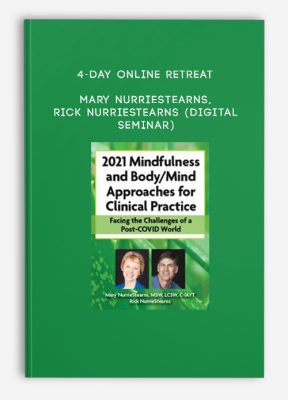
4-Day Online Retreat – Mary NurrieStearns, Rick Nurriestearns (Digital Seminar)
Sale Page
Get 4-Day Online Retreat – Mary NurrieStearns, Rick Nurriestearns (Digital Seminar) on Salaedu.com
Description:
As we left 2020 behind, healing professionals the world over will be challenged to help clients cope in the coming post-COVID world. It’s our duty to prepare with latest science, therapeutic techniques, and to show up whole ourselves.
It’s what we trained for and what we’ve aspired to over many years.
Watch clinician, author, mindfulness and meditation authority, Mary NurrieStearns, MSW, LCSW, C-IAYT, along with Rick NurriesStearns, an experienced retreat leader, in this on-line retreat for a unique training that combines lecture, research and experiential skill building, including how to guide body/mind movement in groups to build cohesion and to teach emotional regulation skills.
Learn evidence-based techniques that empower your clients as they navigate the increased challenges and intensities associated with the pandemic. Listen to clinical examples and practice “good for the brain” techniques that increase emotional regulation skills, decrease shame, cultivate self-acceptance and instill healthy thought patterns; skills that are needed even more during daunting times. Practice body/mind approaches, specific mindfulness skills and self-compassion techniques to strengthen your existing treatment modalities and your therapeutic presence.
Mary and Rick NurrieStearns have over 70 years of combined experience in mindfulness practices and body/mind healing. They are experts at showing clinicians like you how to empower clients to:
- Apply body/mind and mindfulness techniques to reduce anxiety, depression, shame, grief, chronic pain, and/or unworthiness.
- Use self-compassion to make dramatic therapeutic changes.
- Access beneficial memories to increase optimism and personal strength
- Incorporate mindfulness strategies to stay in the moment to soothe distressing emotions and relieve old trauma patterns.
- Apply body/mind interventions to calm the nervous system, as well as increase body and present moment awareness
- Cultivate an inner best friend to mitigate shame and decrease self-blame
- Strengthen relationships and increase authenticity.
Delve into basic neuroscience psychoeducation, evidence-based mind-body interventions, and mindfulness and self-compassion techniques that are invaluable for treating trauma, shame, depression, and anxiety.
You will take away accessible clinical skills for safely approaching trauma, body/mind interventions for anxiety, self-compassion practices for healing unworthiness and grief, brain psychoeducation to reduce shame, and mindfulness interventions for thoughts associated with trauma, depression, pain, and shame.
Purchase today! Set your clients on a pathway of recovery, resilience and overall well-being
Outline:
Neuroscience and Practices Specific to Anxiety and Trauma Treatment
- Neuroplasticity—your brain’s ability to organize and learn
- The triune brain
- Primary emotional motivators
- Polyvagal nerve theory and clinical applications
- Negativity bias of your brain
- Savoring the good and affiliation system of the brain
Social Brain: Causes and Conditions
- Accessing beneficial memories
- Default mode network, salience network and central executive network of the brain
- Window of tolerance psychoeducation and clinical applications
EMOTIONAL STABILIZATION SKILLS—THE FIRST TASK IN TRAUMA TREATMENT
- Importance of including the body in stabilization
- Body scan and sensory input for stabilization
- Mindful breathing practices
- Emotional Freedom Technique
- Practice leading mindful breathing exercises and simple movement
- Clinical examples of emotional stabilization skills
Mindfulness-Based Interventions
Confronting Trauma-Based Negative Thoughts
- Nonjudgmental observing of thoughts
- Naming— write thoughts down
- Recognize, distance and dis-identify from narrative of self-identity
- Relate to the voice of the inner critic with mindful compassion and redirection
- Address negative thoughts regarding chronic pain
- Nourishing wholesome thoughts to undo thought patterns of trauma – repetition and concentration
- Habit tendencies and neuronal pathways
- Clinical examples of relating to thoughts therapeutically
Alleviating Distressing Emotions
- Approach, not avoid, emotions safely with mindfulness
- Be there for grief
- Comfort pose and self-love mantra
- Emotional Freedom Technique for client self-care
- Clinical examples of treating distress with mercy
Increasing Self-Compassion and Emotional Resilience for Trauma and Anxiety Resolution
- Recognize the power of inner voices
- Mindfulness interventions for developing self-compassion
- Who has seen your goodness? – restoring trust
- Teachers of compassion
- The voice of the inner friend
- Three-part self-compassion note
- Offering loving kindness to any inner aspect that feels not deserving
- Compassion for the inner critic
- Clinical examples of utilizing selfcompassion
Treating Trauma-Based Shame
- Repair unworthiness with mindfulnessbased interventions
- Impact of shame on the brain – default network and pain system
- The physiology of shame
- Differentiate among shame, defiance, and noble posture
- Narrative of unworthiness
- Create a new narrative of self
- Clinical examples of treating unworthiness and shame
NLP online course
So what is NLP?
NLP stands for Neuro-Linguistic Programming. Neuro refers to your neurology;
Linguistic refers to language; programming refers to how that neural language functions.
In other words, learning NLP is like learning the language of your own mind!
NLP is the study of excellent communication–both with yourself, and with others.
It was developed by modeling excellent communicators and therapists who got results with their clients.
NLP is a set of tools and techniques, but it is so much more than that.
It is an attitude and a methodology of knowing how to achieve your goals and get results.
More Course: NLP – HYPNOSIS – PHILOSOPHY
Outstanding Course:Enlightened Business Academy 2016 from Stephen Dinan
1 review for 4-Day Online Retreat – Mary NurrieStearns, Rick Nurriestearns (Digital Seminar)
Add a review Cancel reply
Related products
HYPNOSIS - NLP Courses
HYPNOSIS - NLP Courses
HYPNOSIS - NLP Courses
HYPNOSIS - NLP Courses



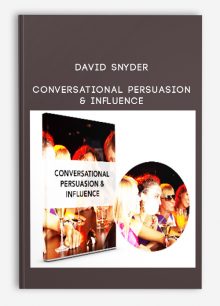


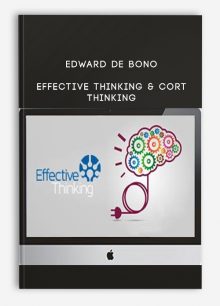
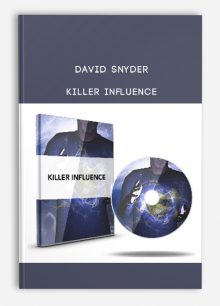

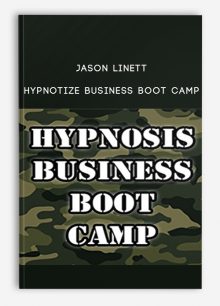
king –
We encourage you to check Content Proof carefully before paying.
“Excepted” these contents: “Online coaching, Software, Facebook group, Skype and Email support from Author.”
If you have enough money and feel good. We encourage you to buy this product from the original Author to get full other “Excepted” contents from them.
Thank you!